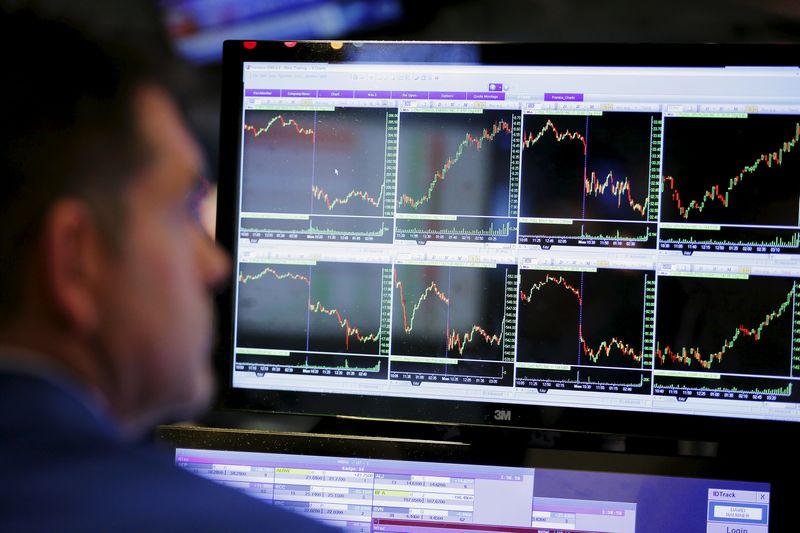Five things to watch in markets in the week ahead
Investing.com -- Equity positioning in the U.S. stock market has sharply declined last week, returning to near-neutral levels following February’s sell-off, Deutsche Bank (ETR:DBKGn) revealed.
According to the bank’s Friday note, the positioning measure dropped to a z-score of 0.15, placing it in the 50th percentile, effectively erasing the post-election boost.
Investor sentiment has also plunged to near-record lows, reflecting growing concerns about economic uncertainty and weakening macroeconomic data.
The pullback in equity positioning sent the S&P 500 touching the lower bound of its narrow post-election trading range, as well as the trend channel established since the October 2022 low.
Deutsche Bank strategists led by Parag Thatte attributed the reversal to several factors, including heightened economic uncertainty, which “spiked a month ago and has not receded.” They said this uncertainty is likely to rise further “ahead of potential escalations" this week.
Moreover, macro data surprises turned negative last week for the first time since September, a development the bank described as part of a “regular cycle with alternating positive and negative phases of 4-5 months.”
Bond market movements have added to concerns about slowing growth. Over the past two weeks, 10-year yields have declined sharply, mirroring the drop in equity positioning and equities, a pattern often seen during periods of rising growth fears.
Defensive sectors and stocks associated with late-cycle recessions have seen strong gains since early last week, also pointing to growth fears.
Another major driver has been the downward revisions to corporate earnings estimates. According to Deutsche Bank, consensus estimates for Q1 earnings have been cut by 3%, adding to market fears. However, the bank noted that these cuts “look only a little worse relative to history, with cuts going into earnings season the norm, and the first quarters of the year usually seeing the largest.”
Despite the sharp pullback in positioning, fund flows have remained strong. The bank reported that equity funds saw $27 billion of inflows last week, the highest level in the past ten weeks.
“As we have emphasized previously, we continue to see a cross-asset inflows boom, with bond funds ($24bn) seeing the largest weekly inflow since Oct 2020,” the report highlighted.
The change in positioning has also been reflected in investor behavior across different strategies. Discretionary positioning has dropped to its lowest level in over six months, while systematic strategies have fallen to a four-month low.
Meanwhile, within equity options, total net call volume has declined, particularly across mega-cap growth and tech stocks.
